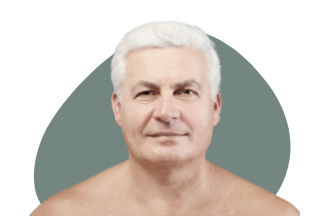What is psoraisis?
Psoriasis is a chronic skin disorder which is characterized by red, raised plaques which tend to be scaly. This skin condition causes rapid build-up of skin cells. The cause of psoriasis is associated with a genetic tendency; if a family member suffers from psoriasis an infection or certain medications can trigger the onset of psoriasis or cause a flare up.
Psoriasis is not contagious. You cannot catch it, nor can you pass it onto another person. Psoriasis is considered an autoimmune condition, which means that the body is “attacking” itself. In psoriasis the “attack” causes skin cell production to accelerate. They are pushed up to the skin’s surface where they pile up and cause plaques.
Treatment for psoriasis requires long-term management and commitment. Treatment options are continually reviewed and potentially rotated to prevent the skin from used to treatment. Combination therapy is often required for long-term management of psoriasis.
What are the symptoms of psoriasis?
- Red scaly patches
- Itchiness
- Shedding
- Scaling
- Discomfort around plaques
- Painful or swollen joints (if this is affecting you, please advise
- Skinfluence Clinic)
What can be done to reduce symptoms?
Cleansing: twice daily with warm water and a gentle cleanser. Avoid using wash cloths, loofas or exfoliating scrubs. As this can all irritate the skin. Bath with bath oil can help soothe itchy areas and remove dry skin.
Moisturiser: otherwise known as emollients are one of the most effective and easiest ways to look after your skin.
Sun-protection: SPF 50+ non-comedogenic sunscreen as psoriasis products can cause sun sensitivities.
Mineral makeup: mineral based makeups allow the skin to breathe and are non-comedogenic.
Low level UV light: Sunlight can slow the growth of skin cells so low level sunlight can make a difference. 10 minutes session two to three times a week with sunscreen on as sunburn can aggravate psoriasis.
What can aggravate psorasis?
- Infections including; Streptococcal tonsillitis
- Injuries; cuts, abrasions, sunburn
- Obesity
- Smoking
- Alcohol consumption
- Sun exposure
- Stress
- Medications; anti-inflammatories, anti-malarial, beta-blockers, lithium
- Stopping oral steroids or topical steroids abruptly
Lifestyle and psoriasis
Diet and lifestyle changes cannot cure psoriasis however healthy living may reduce your symptoms. Weight loss can improve your psoriasis symptoms and reduce your conditions severity. Healthy diet including lean proteins, omega-3 fatty acids can help reduce inflammation within your body. Foods which increase inflammatory markers within the body include refined sugars, dairy products and processed foods therefore these should be limited.
Alcohol consumption can increase flare-ups. Recommendations are to limit alcohol content daily, for men no more than two standard drinks per day whilst for women it is one standard drink per day.
Stress is a well-known trigger for a number of skin conditions including psoriasis. Learning ways to limit stress and coping mechanisms may reduce psoriasis flare-ups. Meditation, journaling, gardening, yoga, and exercise are ways to reduce stress.
Psoriasis for many patients can affect their moods, self-esteem or confidence. Psoriasis Australia is a patient support group which provides supports and information for psoriasis patients. http://www.psoriasisaustralia.org.au/

